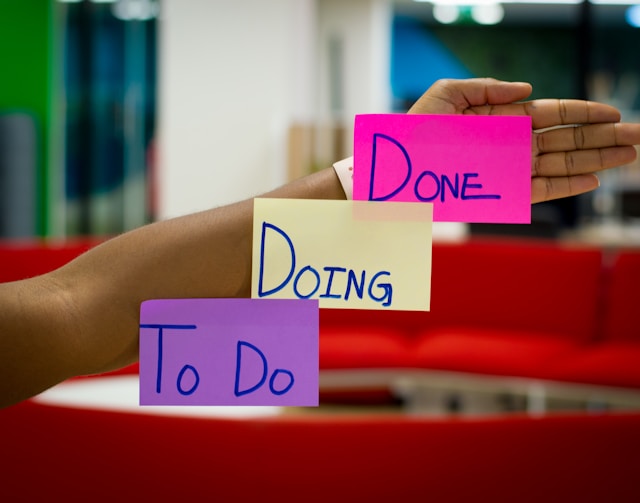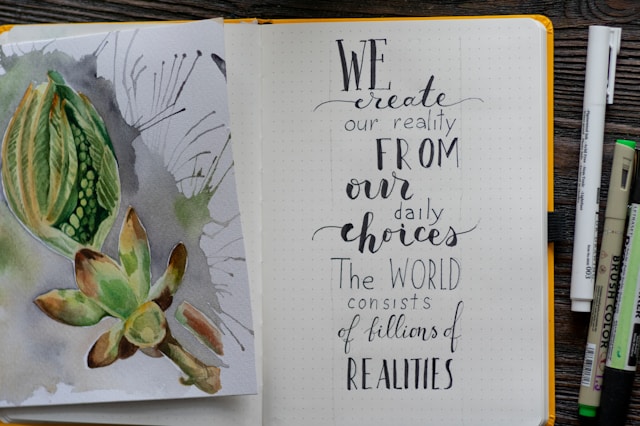- A habit is the pattern the brain loves to repeat to save energy
- Childhood habits carry comfort
- Teenage habits build identity
- Adult routines push productivity or balance
- Good habits add energy and progress / Bad habits drain you
Habits are the quiet architects of your daily life, shaping everything from the way you start your mornings to how you unwind at night. If you’ve ever asked yourself, “What is a habit?”, the answer goes beyond simple routines: it’s about the powerful patterns your brain loves to repeat.
Some habits build health, focus, and happiness, while others sneak in and hold you back. With the right awareness and tools, you can design habits that truly support your goals.
Let me show you how habits work, why they matter, and how you can reshape them starting from today.

What is a habit? The Psychology Behind Daily Routines
Habits often start small but repeat until they become powerful anchors in your day. The fascinating part? You can teach your brain new patterns anytime. With curiosity and practice, routines transform into tools that shape your lifestyle without you even noticing.
Each choice you make builds or strengthens a pathway, shaping not only your actions but also how you see yourself.
Childhood Routines That Shape Behavior
Think back to bedtime stories, brushing your teeth before bed, or singing songs in the car on the way to school. These simple routines laid the foundation for the person you became later in life.
Childhood habits often reflect the environment around you, teaching responsibility, patience, or even creativity.
When children repeat small behaviors, their brains connect them to feelings of safety and love, which makes those routines stick. If you ever wonder why you still crave hot chocolate on rainy days, thank your early learned habits for that sweet comfort.
Teen Habits That Set Future Paths
Teen years are full of choices, and many of them quietly become habits that guide your future. Whether it’s studying late, scrolling endlessly, or practicing sports, each action slowly wires your brain for what comes next. Teens often underestimate the impact of small daily behaviors on shaping their confidence, resilience, and identity over time.
Establishing positive routines, such as journaling, exercising, or taking mindful breaks, can build lifelong tools for managing stress effectively. Even learning how to balance homework with fun creates powerful patterns.
The teenage brain is highly malleable, so habits formed during this stage can have a significant impact on health, friendships, and career paths later in life.

Adult Habits and Productivity Hacks
As an adult, you realize routines can be your greatest ally or your sneakiest thief of time. When you repeat certain actions, they become habits that either push you toward success or hold you back. Something as simple as checking emails first thing can drain energy before real work begins.
Productivity hacks like time blocking, morning planning, or mindful pauses aren’t just strategies. They are intentional habits that reshape your brain’s wiring. By consciously designing your routines, you turn autopilot into an advantage.
Remember, every small decision adds up to a bigger pattern that defines how productive you feel.
As you grow older, habits shift toward health, reflection, and deeper meaning. Many people find joy in morning walks, gratitude journaling, or evening rituals that nurture peace. The question “What is a habit?” becomes more personal with time.
The beauty is that no matter your age, you can reshape routines to match the life you want.
Good vs. Bad Habits: The Hidden Balance
When you think about habits, remember that not all routines are equal: some lift you up while others quietly drain you.
- Good habits, like moving your body or saving money, add energy and progress to your daily life.
- Bad habits, like constant scrolling or late-night snacking, sneak in and steal time without you noticing.
The hidden balance lies in how you manage both sides with awareness and kindness.

Cultural Habits Around the World
When you ask yourself, “What is a habit?”, it’s fascinating to see how cultures answer that question differently.
- In Japan, people practice “Osoji”, a year-end cleaning ritual that clears both homes and minds before the New Year begins.
- In Spain, siesta naps remain a cultural tradition that prioritizes rest in the middle of a busy day.
- In Sweden, fika, coffee with friends, shows how social habits keep communities connected.
These cultural routines remind you that habits are not only personal but also collective, shaping how entire societies find balance, joy, and meaning in everyday life.
Ever wondered if successful people have odd habits? Spoiler alert: they do, and often they swear by them.
- Winston Churchill famously took daily naps even during wartime, insisting they boosted his productivity and creativity.
- Maya Angelou rented hotel rooms just to write, avoiding the distractions of home.
- Steve Jobs always wore the same black turtleneck, removing the daily decision of choosing clothes.
These quirky routines might look strange from the outside, but they reveal how powerful habits can anchor creativity, focus, and energy.
The lesson here isn’t to copy Churchill’s naps or Jobs’ wardrobe, but to understand what habits can do for your life. Success often stems from establishing routines that minimize friction, eliminate unnecessary decisions, and establish reliable anchors for your energy.
Habits don’t need to be glamorous to be powerful. A daily walk, a set bedtime, or a morning stretch can be the difference between feeling scattered or grounded.
By recognizing what works for you and repeating it consistently, you create a supportive environment that helps you achieve your goals without relying solely on sheer willpower.
Finding Your Own Inspiring Habits
You don’t need to look far to find inspiration for your own routines. Maybe you’ll borrow the discipline of a morning ritual, the calm of an evening routine, or the joy of a weekly gathering with loved ones. Experiment until you discover habits that make your days smoother and more meaningful.
Once you do, you’ll see that success is often just the natural side effect of simple, intentional routines.
Tech and apps that track your routines:
- Fitness trackers count your steps,
- Smartwatches monitor your sleep,
- Apps remind you to drink water, meditate, or even take mindful breaks during hectic days.
The beauty is that technology doesn’t just track your routines. It gently nudges you toward building better ones without feeling forced.

Conclusion
At the end of the day, habits are not about perfection, but gentle consistency and the stories you tell yourself daily. When you pause and reflect on “What is a habit?”, you’ll see it’s less about discipline and more about design. Every small action, repeated with intention, shapes the bigger picture of your life.
The beauty is that you don’t need to change everything at once. Just one shift can spark a ripple of progress. So, take a deep breath, choose one new habit, and watch how it slowly transforms your routines into something truly meaningful.



